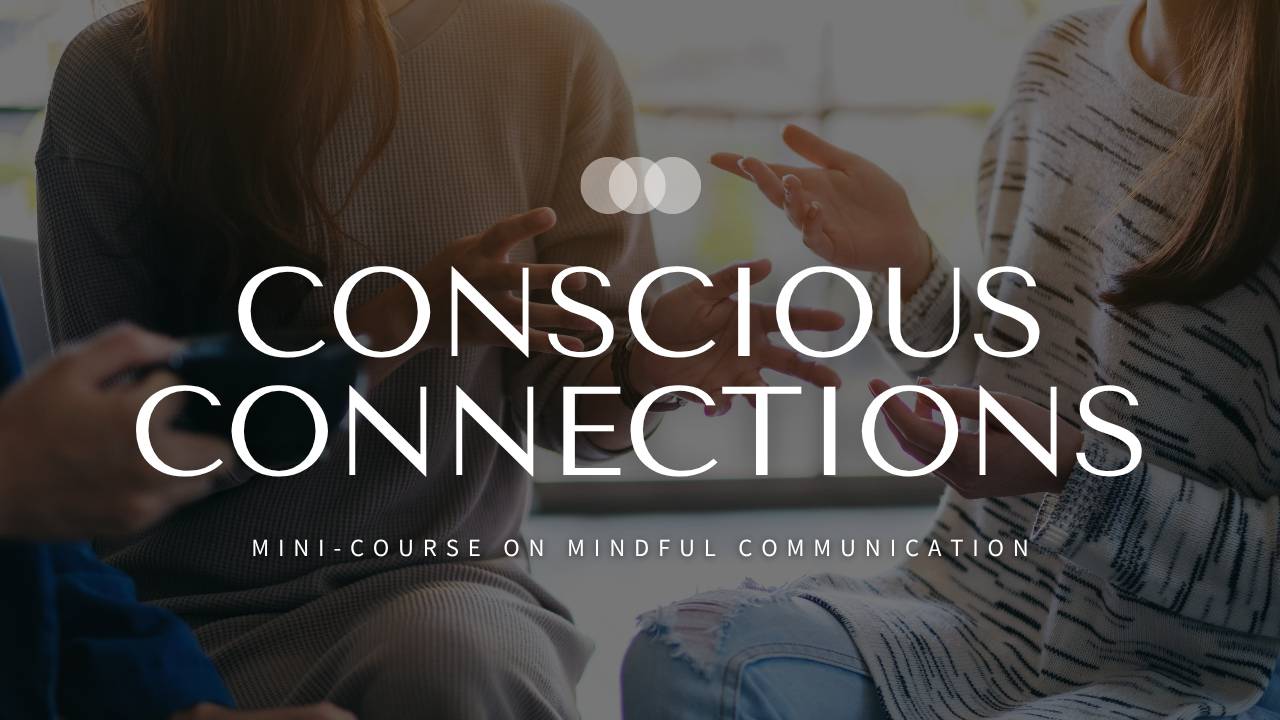8 Dysfunctional Patterns that Are Sabotaging Your Relationships (And How to Fix Them)

[Read Time: 6 minutes]
Listen to the full podcast episode here.
No matter who you are, we all have that one dysfunctional communication pattern that shows up when we're feeling triggered. You know, the thing you do when your nervous system gets activated and suddenly you're either shutting down, changing the subject, or saying things you don't mean.
After years of coaching people through their communication struggles, I started noticing these patterns weren't random. They were predictable. Repetitive. And honestly? They were costing people their most important relationships. And for what? Pride? Ego? The need to be right?
That's why I created the "What's Your Dysfunctional Communication Pattern?" quiz, an assessment that identifies exactly how you show up when things get tense. And I'll warn you, the feedback I get most is that the results "feel like a personal attack." Well, because it kind of is, haha.
The 8 Archetypes That Ruin Your Relationships
After years of doing what I do, here's what I observed: most of us fall into one of eight dysfunctional communication patterns when we're activated. Let's walk through them briefly...

The Mind Reader
You assume you know what that text message meant. You read between the lines of every conversation. When your friend texts back "K" instead of "OK," you're convinced they're mad at you and you must have done something wrong.
The mind reader gets caught up in the stories inside their head instead of asking clarifying questions. They jump to conclusions and then react to assumptions rather than reality.

The Stonewaller
When conflict arises, you go silent. You shut down, create physical distance, and essentially disappear from the conversation. This isn't to be confused with avoidance. This isn't you changing the subject to avoid conflict, this is you there but emotionally withdrawing.
What's interesting is that stonewalling usually isn't someone's first response. It develops over time as a form of self-preservation, like when someone feels consistently criticized or overwhelmed.

The Emotional Reactor
Confession, this was me in the early years of my marriage. Big emotional outbursts, diarrhea of the mouth, saying things you don't mean in the heat of the moment. You react first, think later, and then spend time apologizing for what came out of your mouth. 0 out of 5 stars, do not recommend.

The Dominator
You interrupt. You talk over people. You have to be right, have the last word, and prove your point. Dominators use their intensity, sometimes even their intelligence, to overpower others in conversation.
They're the ones who get bigger and louder when challenged, using logic as a weapon rather than a tool for understanding.

The People Pleaser
You say sorry constantly. You say yes when you mean no. You're so concerned with keeping the peace that you lose connection with your own needs and boundaries.
Pleasers often find themselves resentful and burnt out because they're taking care of everyone except themselves.

The Analyzer
The analyzer intellectualizes everything instead of actually feeling their feelings. They say "I think" instead of "I feel. They're the people who want every detail so they can "understand" how something went wrong.
While analysis has its place, analyzers can sometimes skip over the emotional experience entirely, wanting to fast-forward to the solution.

The Avoider
You literally avoid conflict. You'll walk the other way, pretend everything's fine, or ghost people rather than have difficult conversations with them. "It's not a big deal" and "It's cool" are your go-to phrases...even when things are definitely not cool.

The Guilt Tripper
This one's tough because these folks are under the illusion that guilt is their "love language." They often use shame and passive-aggressive remarks to express their feelings without actually saying how they feel. They keep score in relationships and will cash in at a later date if needed.
"Remember when I did XYZ for you?"
How These Patterns Nearly Broke Us
I think it's important you understand that even someone who teaches communication for a living had (and still has) to do this work.
Ten years ago, I was primarily a Dominator and Emotional Reactor. I interrupted, I got loud, I had to be right. My spouse was a Pleaser and Stonewaller. Can you imagine how that played out?
I'd get big and reactive, which would cause her to shut down. The more she shut down, the bigger I'd get, trying to get a response. It was a toxic cycle that could have ended our marriage if we hadn't gotten help.
The breakthrough came when we started understanding that these patterns weren't character flaws; they were protective mechanisms rooted in our core wounds.
The Core Wounds Behind the Patterns
Here's what most people don't realize, every communication archetype is protecting something. There's usually a core wound underneath the "armor," fear of abandonment, rejection, not being good enough, or fear of vulnerability, etc.
For example, my wife's stonewalling made perfect sense when we traced it back to her experience as a child of divorce. When you've seen conflict destroy a family, it makes sense that shutting down becomes a survival mechanism.
My dominating behavior? It was rooted in a need to control situations because unpredictability felt unsafe to me. And I was used to having to "fight" in order to be heard.
The Path Forward: Awareness + Compassion
The beautiful thing about identifying your archetype is that awareness is the first step toward change. Because you can't shift a pattern you can't see.
But here's what's crucial...when you take this quiz with your partner or family members, don't weaponize their results. Meaning, don't point at them mid-argument and say, "See? You're being a Stonewaller again!" That is a quick way to break trust and destroy the relationship.
Instead, get curious. Ask questions like:
- "How do you feel about your results?"
- "What's coming up for you when you read this?"
- "What do you think activates this pattern for you?"
Remember, when someone is activated in their archetype (when they're in full dominator or emotional reactor mode), that's not the time to point it out. That's the time to create safety so they can come back to their regulated self, the one you adore.
Your Archetypes Can Change
Here's something fascinating... your primary archetype might be different with different people. You might be a Pleaser at work but a Dominator at home. You might avoid conflict with your dad, but be an Emotional Reactor with your sister. The dynamics between two people create different activation patterns.
This is why you can retake the quiz with specific relationships in mind and get different results.
The Work Never Stops (And That's a Good Thing)
Even now, years into this work, I still catch myself falling into these dysfunctional patterns. Just last week, I interrupted my wife mid-story to give her the psychological explanation for what she was experiencing. Needless to say, it did not go over well, haha. She looked at me and said, "I want to feel my feelings, not just be psycho analyzed and coached."
She was right. Just because I can see the pattern, it doesn't give me permission to fast-forward her emotional processing. They are her emotions, it's her process. Not mine. It was a good reminder to be patient, to be curious.
Take the Quiz (But Do It Right)
If you're ready to look at your own patterns, you can take the quiz here. It takes about 6-10 minutes. And if you feel personally attacked by your results, that means you did it right ;)
Remember, wherever there's a trigger, there's a teaching for you. The people in our lives are just mirrors, showing us what we haven't healed yet.
At the end of the day, we're all just trying to be seen, heard, and loved. Sometimes our protective patterns can get in the way of that. But with self-awareness and intention, we can start communicating from our wisdom instead of our wounds.
So take the quiz, share it with the people you love. Have the conversations. And remember to approach it all with curiosity and compassion!
P.S. If this resonated with you, share it with a friend who might need this reminder too. And when you're ready, here’s how we can work together:
- Private Coaching - Get tailored guidance for removing emotional and mental blocks keeping you in survival mode. Limited spots available.
- Mindless to Mindful Courses - Take your learning deeper by embodying the teachings with my online courses, workbooks, meditations, and LIVE calls with me each month!
- Leadership Training - I'll create a customized workshop for your team to better enhance their communication and emotional intelligence, teaching them to become better team members and leaders.


